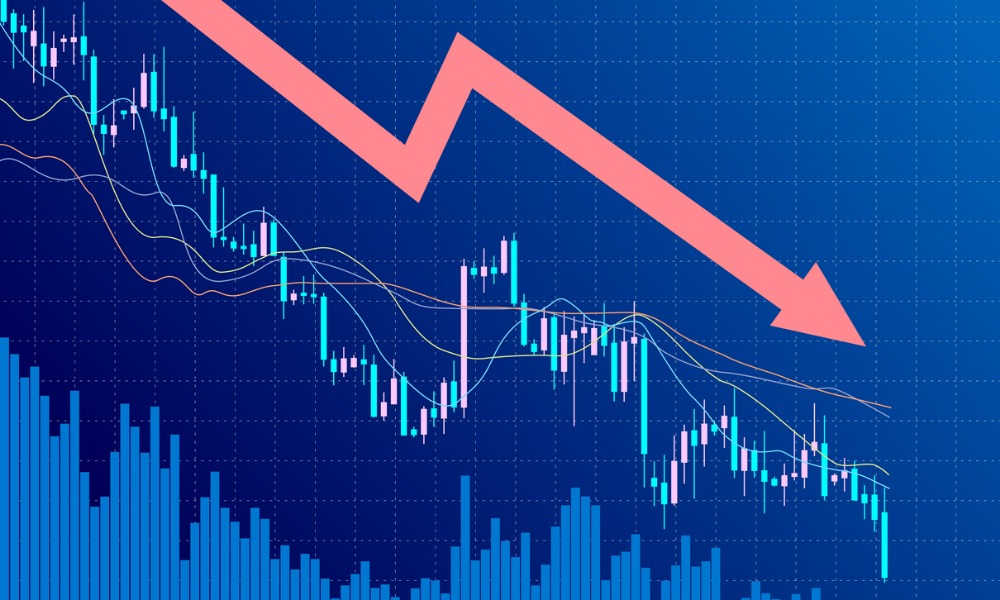But there is some good news, with rate cuts still expected early in 2024

The ongoing trend of Canadian investors pulling back from mutual funds is one of the key factors in the wider financial sector’s declining GDP.
The latest reading of the Canadian economy from Statistics Canada showed a contraction overall of 0.3% in the third quarter of 2023 compared to the previous quarter which had posted a 0.3% gain. The annualized figure showed a 1.1% contraction.
The financial and insurance sector posted a 0.3% decline, the third monthly drop in four months with financial investment funds, services, and other vehicles down 1.4% and contributing the most to the sector’s decline.
This was “in large part due to declines in equity and fixed-income mutual fund assets as investors' expectations of an additional interest rate hike in the United States in 2023 weighed on equity and fixed income bond prices,” the Statistics Canada report noted.
Reaction to stats
Reaction to the overall GDP decline in the third quarter, following revised-up stats for the second quarter, is cautiously optimistic, especially as provision data suggests a better start to the fourth quarter – and rate cuts in 2024.
“The underlying trend remains one of modest growth on aggregate but a decline in activity in per capita terms,” said CIBC economist Andrew Grantham. “While GDP should see a decent bounce in Q4, that will partly reflect a rebound from some of the supply constraints that impacted the third quarter. Overall, the sluggish trend in economic activity and further decline in the job vacancy rate today keeps us on track for a first interest rate cut in Q2 next year, which is in line with our previous forecast.”
TD Economics’ James Orlando agrees that there are some positives, but also some concerns.
“Well, it's not a technical recession, but it's not good either. While the Canadian economy contracted more than expected in the third quarter, the upward revision to Q2 and the positive flash estimate for October should ease some recession concerns,” he commented, adding that there is no reason for the BoC to hike rates again. “We expect below trend economic growth to continue over the coming months, which will push inflation gradually closer to the 2% target. This will give the BoC a few months before it starts to prepare markets for rate cuts, which we expect will start in April 2024.”
And Nathan Janzen at RBC Economics concurs that the soft data suggests no further rate hikes, but he is less bullish on cuts.
“We expect the BoC to remain on hold for now with inflation still running above target - but our own forecast assumes the central bank will pivot to rate cuts in the second half of next year,” he concluded.



